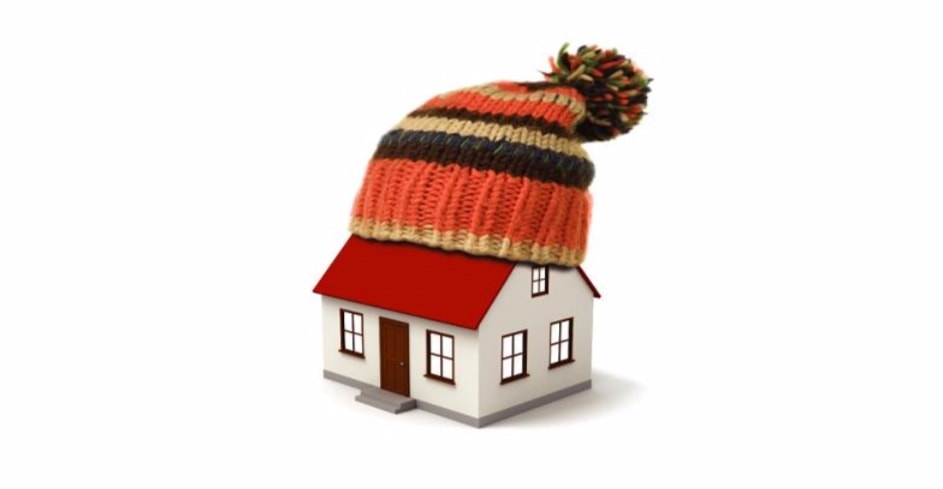

Here in Ucluelet, we are all aware that it is time to prepare for the gale force winds that will whip through the west coast for the next few months. This means that your home will be facing the harshest weather of the year, no matter where in Canada you are. We are about to show you how you can winterize your house to save you a bundle of money on energy costs, and make springtime a breeze.
It's highly recommended that you contact a local professional heating/cooling technician to have the furnace or heat pump inspected. This is an issue of both safety and energy efficiency, because after many months of possible non-use, these systems can require a bit of assistance to get back into tip-top winter shape.
The usual setting for ceiling fans is for them to run in a counter-clockwise direction - but if you get out the ceiling fan manual, you will find directions on how to reverse this. The change in blade direction will create a very useful updraft, which will push the heat from your system down toward the floor - where you want it to be to keep your home feeling toasty. This simple trick will ensure that your heating system works most efficiently and effectively.
In the case that you do not have ceiling fans, you can get a similar effect by tilting a oscillating fan towards the ceiling, creating a steady airflow in any room.
Before the possibility of ice or snow is upon us, you will want to get up on the roof and check for anything that might be amiss. Look for damaged, loose or missing shingles, and have them repaired or replaced as soon as possible. Any damage to the roof leaves your house vulnerable to leaks, and as we all know, water damage is one of the most detrimental things that can happen to a home.
Keeping the moisture out, and the warmth in is what we are trying to do as we winterize because it is unlikely that we can find any of the damage until the spring comes, and by then it might be too late.
Start with the exterior of the house. Check around every last window and door, and if there are any cracks, get to fixing them before the winter winds set in. This is one of the most likely places that can cause air leaks in your home, which decreases the energy efficiency enormously.
Once the outdoor caulking has been checked, go ahead and do the same for all the interior window and door fixtures. With both sides being airtight, you will keep the cool breeze out and the cozy heat in your home.
If you don't clear out those gutters before the winter falls, the water that can get trapped in the gutter can back up onto the roofing and cause rotting, or even worse, leaks! Also if the water seeps out of the gutters, it can even damage the siding and/or trim which can not only cause rotting and leaks, but can be very expensive to repair when spring rolls around.
An easy way to do this is to add extensions to downspouts so that water from the storms runs out at least 3 feet away from your house. Also, adding concrete slabs under the downspout extensions will further help the water drain more diffusely.
Of course, this is important because in the case of freezing, water around the foundation can get into small crevasses and upon expansion when frozen, can cause bigger cracks. As a homeowner, a cracked foundation is one of the most frustrating damages that can happen! You can prevent that problem with a little foresight.
You will want to make sure that the pipes are empty before the possibility of freezing is upon us because water left in pipes over the cold winter months can freeze, which will cause pipes to burst. Start this process by disconnecting all the exterior hoses, and store them for the spring. Turn off the main water to the outside and run the faucet until all the water is drained.
When the last of the leaves have fallen from the autumn trees, use that final layer of foliage to help your lawn be well fertilized come spring. This is easily accomplished by mowing the leaves along with the grass. The small sized pieces that will be left behind will decompose over the course of the winter, leaving a nourishing layer over the grass.
When it comes to stowing your mower after that last mulch session, remember to drain any remaining fuel, as any fuel left in the engine is likely to decompose, which will make it hard to start the mower come spring. So at the last lawn mowing of the season, you are best to run the mower until it is out of fuel. This will ensure the best running of your mower when you need it next.
If you have a wood-burning fireplace in your house, be sure to call a professional chimney sweep before lighting any fires in the fireplace. You will want to be sure that the fireplace, chimney and vents are all clear of debris before you make your home cozy with a roaring fire.
Since winter months mean that the air is generally circulated through your home and not through windows, you will want to ensure that all the batteries in all the smoke and carbon monoxide detectors have been changed before the winter season.
If you have any further questions about what it takes to make the move to start living in Ucluelet, please do not hesitate to contact us!